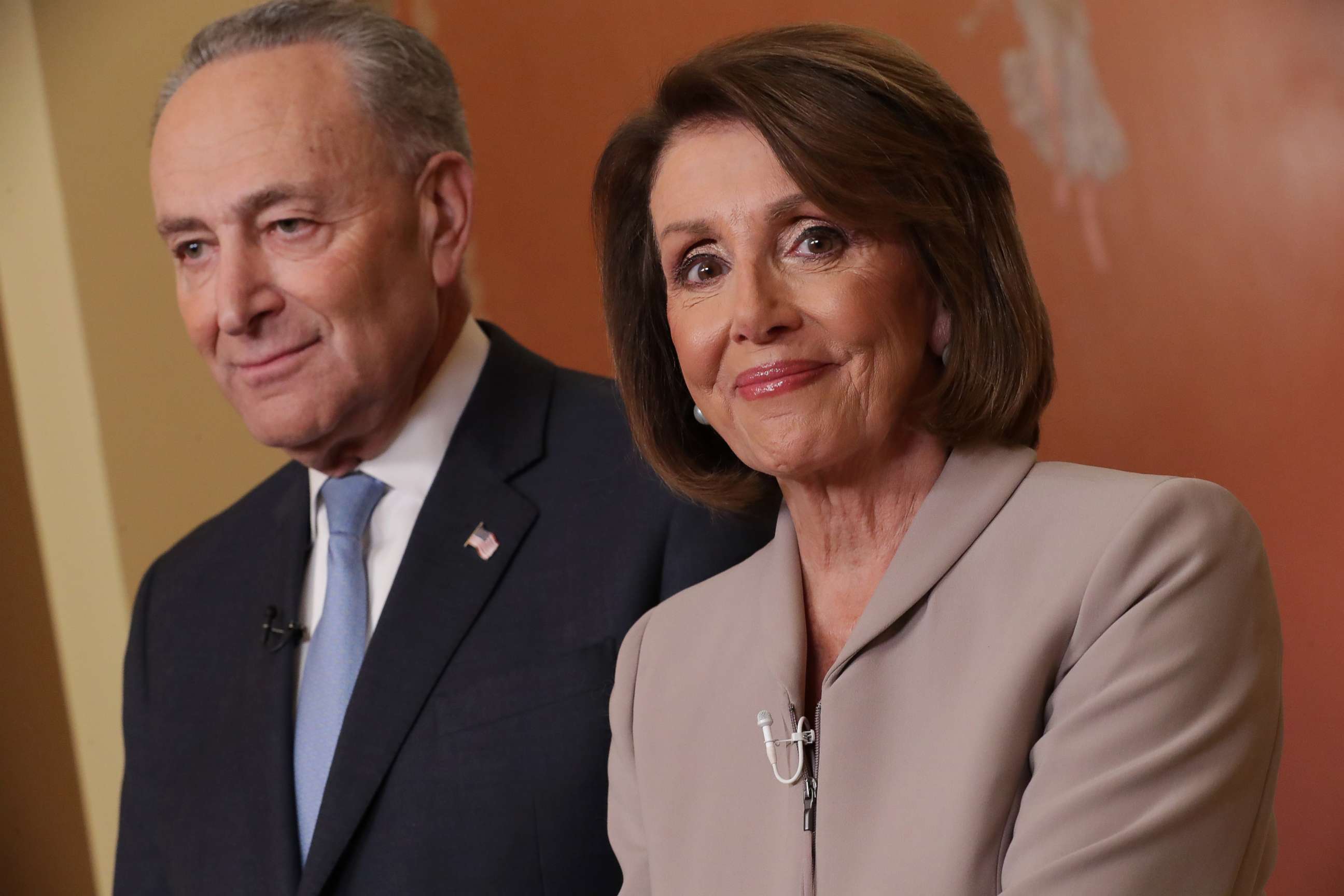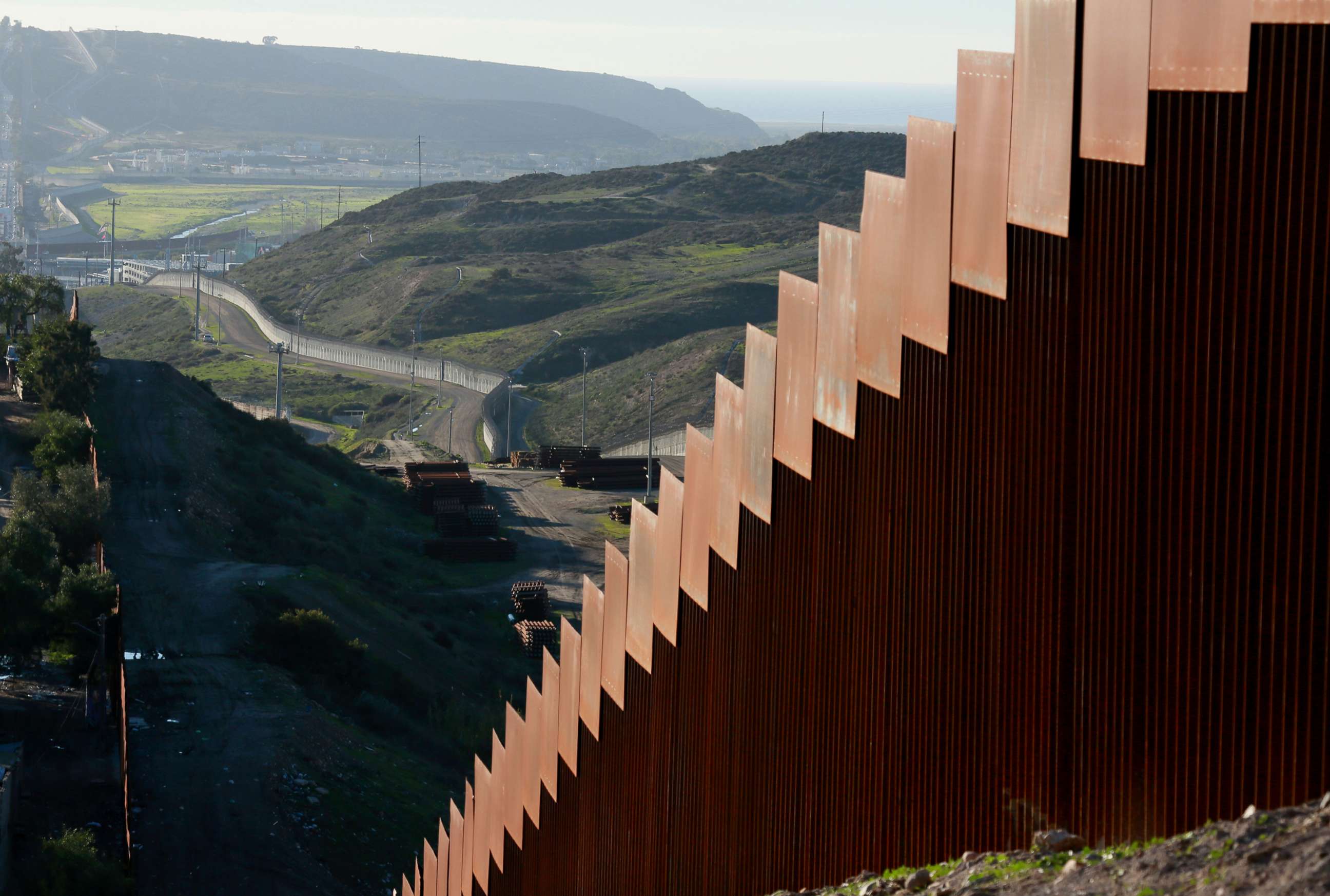Trump faces political emergency of his own making in fight over border wall: ANALYSIS
The president has managed to create a massive political emergency for himself.
President Donald Trump did not declare a national emergency with respect to the southern border on Tuesday night.
But he has managed to create a massive political emergency for himself -- a fact that came through in the strikingly conventional setting and relatively tame and brief address from the president gave Tuesday night.
Trump’s prime-time address to the nation from the Oval Office -- the first such speech of his presidency -- crystallized the stakes of the president's border wall gamble.

Trump took a new tack, pleading for “common sense” to prevail in negotiations with Democrats after two years where he’s governed with mockery and misinformation.
He pitched his proposed solutions, mainly on humanitarian grounds, hoping to force members of Congress closer to his side in negotiations -- though with a pointed reminder that, in his view, lives are on the line.
“This is a humanitarian crisis -- a crisis of the heart, and a crisis of the soul,” the president said. “The only thing that is immoral is to do nothing.”
Trump is now pinning his near-term political future on his promise of a wall that would no longer be a wall, and that neither Mexico nor Congress is willing to pay for. All of this in the service of a campaign promise that never had broad public support in the first place.
The price, in part, is a sacrifice of any sense of Trump’s political invulnerability, at a moment of diminished credibility and clout. Unappealing White House options going forward include a massive power grab that those in his own party might seek to buck and an outright capitulation to newly emboldened Democrats.
It’s also causing an extended government shutdown that Trump said he’d gladly own but that his administration has been scrambling to minimize the impact of -- a tell of a hand that is probably not winning.

Democrats are maintaining a united front, sensing a powerful and galvanizing issue in the days immediately after they took control of the House.
“President Trump must stop holding the American people hostage, must stop manufacturing a crisis and must re-open the government,” House Speaker Nancy Pelosi said in response to the president.
“We don’t govern by temper tantrum,” said Senate Democratic Leader Chuck Schumer. “This president just used the backdrop of the Oval Office to manufacture a crisis, stoke fear and divert attention from the turmoil in his administration.”
The speech and the White House’s accompanying lobbying push are an attempt to rally the country behind the president in what he is casting as a grave threat to the nation. But the idea that Trump could persuade a broad swath of the public to his point of view ignores the evidence of his entire polarizing political career.
He is banking on unlikely flexibility from his political enemies, along with uncommon discipline from his allies. Yet Trump already tried to swing the midterms around a sense of crisis at the border, only to see his party walloped in the suburbs in a rout that cost them 40 House seats and the majority.
If the speech was aimed only at his base, the lobbying push signals concern bordering on a trait Trump surely doesn’t want to admit: weakness. Eighteen days into the shutdown, he was practically begging Democrats to negotiate with him, while showing little willingness to budge on his own.
“This situation could be solved in a 45-minute meeting,” said the president who ran in 2016 on his deal-making acumen.
But Trump’s misleading statements are showing signs of catching up to him. Members of Congress are not swayed by arguments they view as false. And a growing number of Republicans are saying publicly that it’s time to move on and fund the government without a wall that taxpayers were never supposed to be on the hook for in the first place.
With congressional leaders back at the White House Wednesday morning, none of this guarantees political or policy wins for Democrats. A long shutdown could make all involved look bad. Trump will likely embrace the sense that he’s positioned against a party that did not want to build a border wall -- and maybe against Congress as a whole.
Yet Trump is clearly frustrated by his failure in this push. He has built up threats and the sense of crisis at the border while holding out for near-impossible solutions, while also not outright declaring a national emergency and acting on his own.
The prevailing White House view, after prodding from conservative voices outside the government, is that the wall is too central to Trump’s brand for him to abandon. But a shutdown about very little has come to mean a whole lot for Trump and his presidency.




